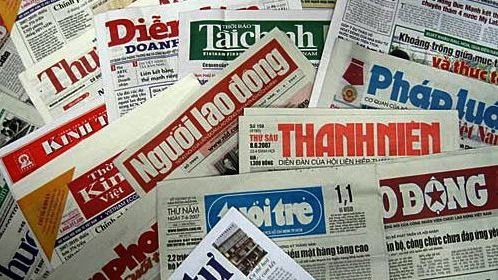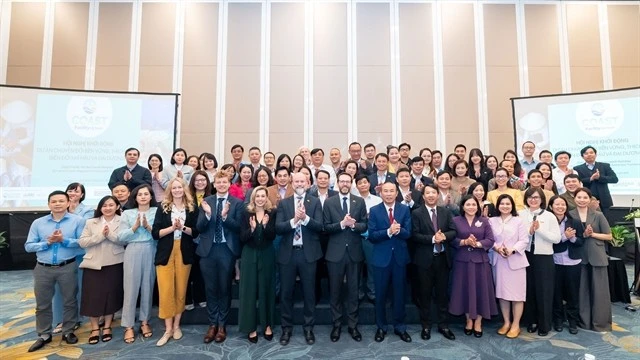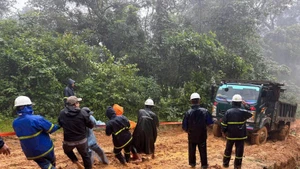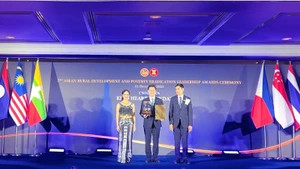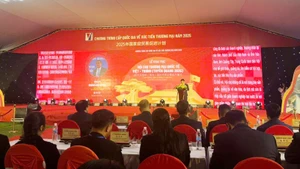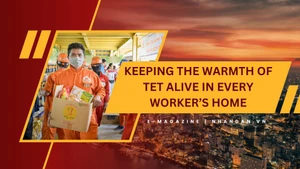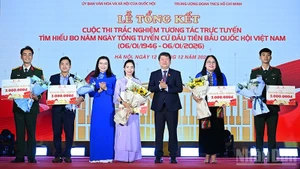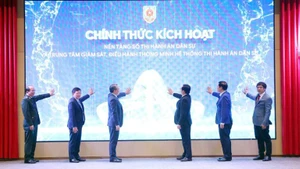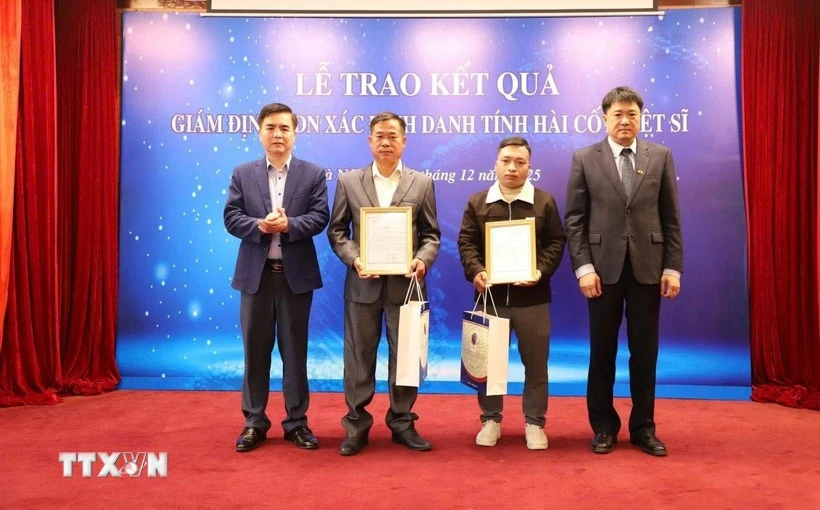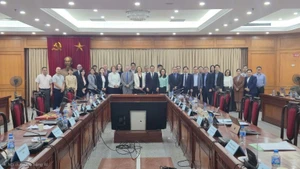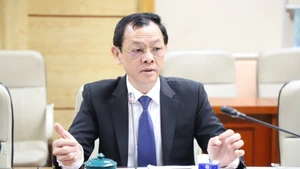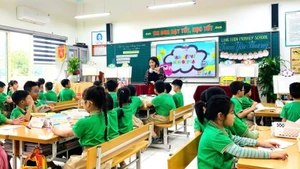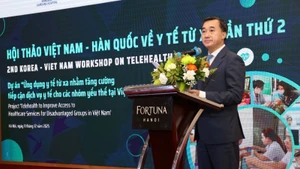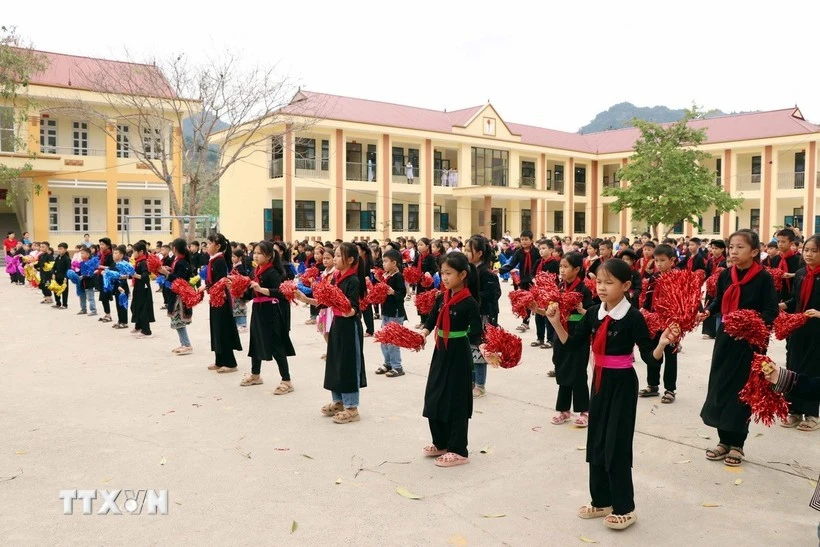That is why in recent years, freedom of the press and freedom of speech have seen undeniable progress. Official data show that as of March 2013, Vietnam had 812 print newspaper organisations, nearly 17,000 accredited journalists, one news agency, 67 radio and television stations, 101 TV channels, 78 radio channels, 74 online newspapers and magazines, 336 social networking sites and 1,174 news websites. In 2011, there were 46 online newspapers and 287 news websites.
The Voice of Vietnam’s transmission now covers 99.5% of Vietnam’s territory, and reaches a number of other countries in the world. More than 90% of households in Vietnam can receive signals from Vietnam Television. Through a wide range of media, Vietnamese people can watch 75 foreign TV channels, including world-famous ones like CNN, BBC, TV5, NHK, DW, Australia Network, KBS and Bloomberg. 20 foreign news organisations have resident correspondents in Vietnam and many foreign-language newspapers and magazines are widely distributed in Vietnam. Through the internet, Vietnamese people can access content from major global news agencies, such as AFP, AP, VOA, Reuters, Kyodo, The Economist and the Financial Times.
Vietnam has 64 publishing houses, which printed 28,009 publications in 2012 alone, with an estimated 301,717,000 copies covering a wide diversity of content. Recognising the role of the internet, the Vietnamese Government has introduced measures to encourage internet for economic, social and cultural development, assisting administrative reforms, enhancing people’s lives and ensuring the basic rights of the people. As a result, the International Telecommunication Union ranked Vietnam third in Southeast Asia and eighth in Asia for its number of internet users in 2012.
According to a report of We Are Social, an independent research organisation on global social media, the number of internet users in Vietnam was 30.8 million as of December 2012, accounting for 34% of the population, beating the global average of 33%. In October 2009, 3G service was launched, which fuelled a remarkable boom of broadband internet in Vietnam. As of July 2012, the number of 3G users reached 16 million, accounting for 18% of the population.
The blogosphere is also very active with nearly 3 million personal blogs. Most bloggers use their blogs as a place to express their thoughts, show emotions and share knowledge. Through blogs, many groups of voluntary students have been formed to engage in social activities such as raising funds to help poor children and the homeless. Free Wi-Fi access is available in many public places, such as restaurants, hotels and airport lounges. At tourist attractions, there have been plans to offer Wi-Fi, evidence that local authorities are paying attention to the development of the internet.
It is obvious that the development of the media system not only helps the people to satisfy their cultural curiosity and broaden their knowledge, but that it also provides a public forum for the discussion and even refutation of government policy at all levels. In many cases, the media system is truly an instrument to protect social benefits and the rights of the people, especially in supervising law enforcement. Many media organisations in Vietnam have been active in fighting corruption and criticising acts in violation of human rights.
Recently, National Assembly debates have been broadcast live, and the draft version of a new Constitution has been widely distributed to collect opinions from the public. Many seminars, workshops and debates offering different views on political, economic and social issues are widely covered on the mass media. Such coverage has helped the Vietnamese people have a clear view of important issues and give their opinions in a responsible manner. As a result, the media system in Vietnam has become an important tool in protecting and promoting human rights.
To ensure the development of the media system, in addition to specific regulations enshrined in the Constitution and laws, the Vietnamese State always pays attention to refining the legal system to enable the mass media to fulfil their duty and promote the freedom of speech and freedom of press in Vietnam. Clear evidence of this attention is the adoption of the Press Law and Publishing Law to show the consistent respect for the dissemination of personal works in line with the Constitution.
In today’s world, freedom of speech and freedom of the press are crucial factors to the stability and development of each country. They are also representative of that country’s concept and policy on human rights. The Universal Declaration of Human Rights and the International Covenant on Civil and Political Rights assert these rights and Vietnam always observes these treaties.
However, despite Vietnam’s achievements in human rights, hostile forces and some unfriendly organisations and individuals often cite articles in these treaties to fabricate that there is “no freedom of speech and freedom of the press” and to accuse Vietnam of “violating freedom of speech and freedom of the press”.
In their quotes, they intentionally ignore an article in the Universal Declaration of Human Rights which stipulates that “In the exercise of his rights and freedoms, everyone shall be subject only to such limitations as are determined by law solely for the purpose of securing due recognition and respect for the rights and freedoms of others and of meeting the just requirements of morality, public order and the general welfare in a democratic society.”
They also ignore an article in the International Covenant on Civil and Political Rights stating that “All peoples have the right of self-determination. By virtue of that right they freely determine their political status and freely pursue their economic, social and cultural development” and regarding freedom of speech, the Covenant stipulates that the exercise of these rights “carries with it special duties and responsibilities. It may therefore be subject to certain restrictions.”
On Wikipedia, where everyone can freely expresses their opinions, in the Freedom of speech entry, it says “Limitations to freedom of speech may follow the "harm principle" or the "offense principle", for example in the case of pornography, or hate speech” (intended to offend an individual or group of people because of race, gender, nationality, religion, sexual orientation, disability, linguistic competence, ideology, social status, occupation, appearance, thinking ability or any differences). Limitations to freedom of speech can be exercised by law enforcement or social condemnation.
In fact, not only in Vietnam are there sanctions against the acts of abusing the freedom of speech and freedom of the press to break the laws but also in the United States, Germany, France, the Republic of Korea and Singapore there are laws with strict punishments for abusing freedom of speech and freedom of the press. Those who usually praise press freedom under the so-called “Republic of Vietnam” should know that Article 16 in the 1956 Constitution of this regime states, “Every citizen has the right to freedom of expression. This right may not be used for false accusations, slander, outrages against public morals, incitation to internal disturbances or for the overthrow of the republican form of government”. Article 12 of the 1967 Constitution of this regime also stipulates, “The State respects the right to freedom of thought, freedom of expression, freedom of the press and publishing as long as the exercise of these rights does not harm personal reputation, security and defence or fine traditions.”
There is no justification for that regime’s freedom of speech and freedom of the press when in January 1975 alone, “19 journalists were imprisoned and five opposition newspapers were closed.” And 30 years after the death of an AFP correspondent, Nguyen Ngoc Bich, the last general director of the so-called “Vietnam Press” – VTX, wrote “I was living in a tense moment when Colonel Pham Kim Quy shot dead AFP correspondent Paul Leandri and insisted VTX to report the event according to the explanation of the National Police”!
The exercise of the right to freedom of speech and freedom of the press in Vietnam is now facing some difficulties since people are not fully aware of the law and the media system is developed but still lacks professionalism. Hostile forces and some unfriendly individuals abuse the mass media to exert negative impacts on society and capitalise on the enforcement of the law to slander the Vietnamese State.
But we believe that with the correct point of view and policy of the Vietnamese State on freedom of speech and freedom of the press, both in the short term and in the long term, all Vietnamese people can fully enjoy these rights and be allowed to develop in a comprehensive and harmonious manner, thereby making substantive contributions to social development.
